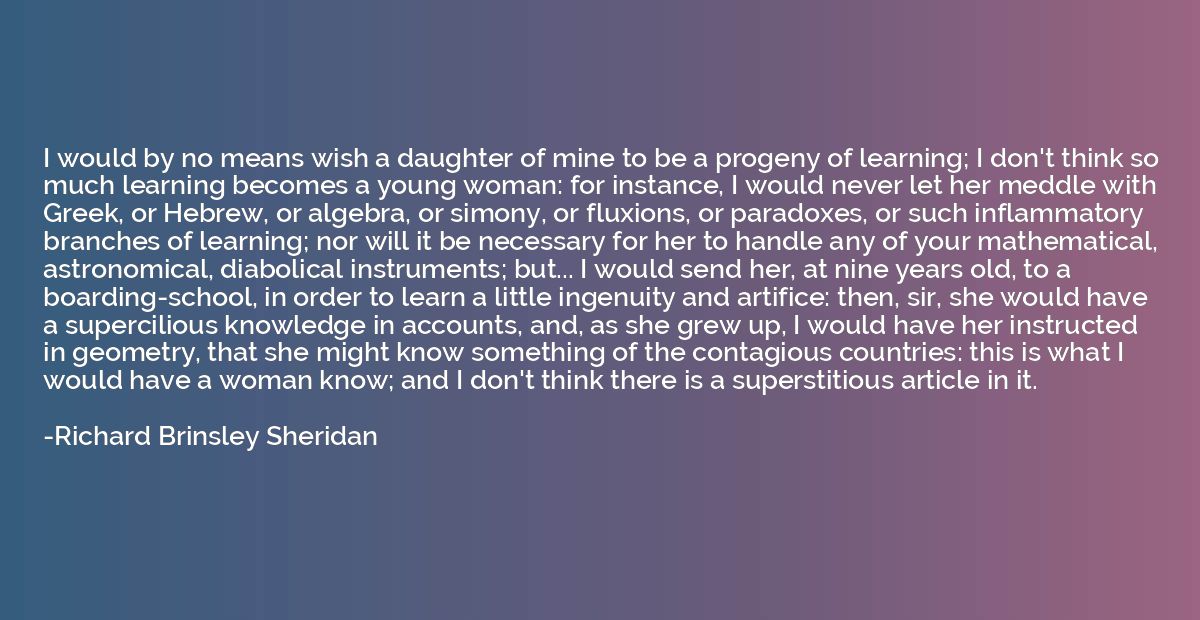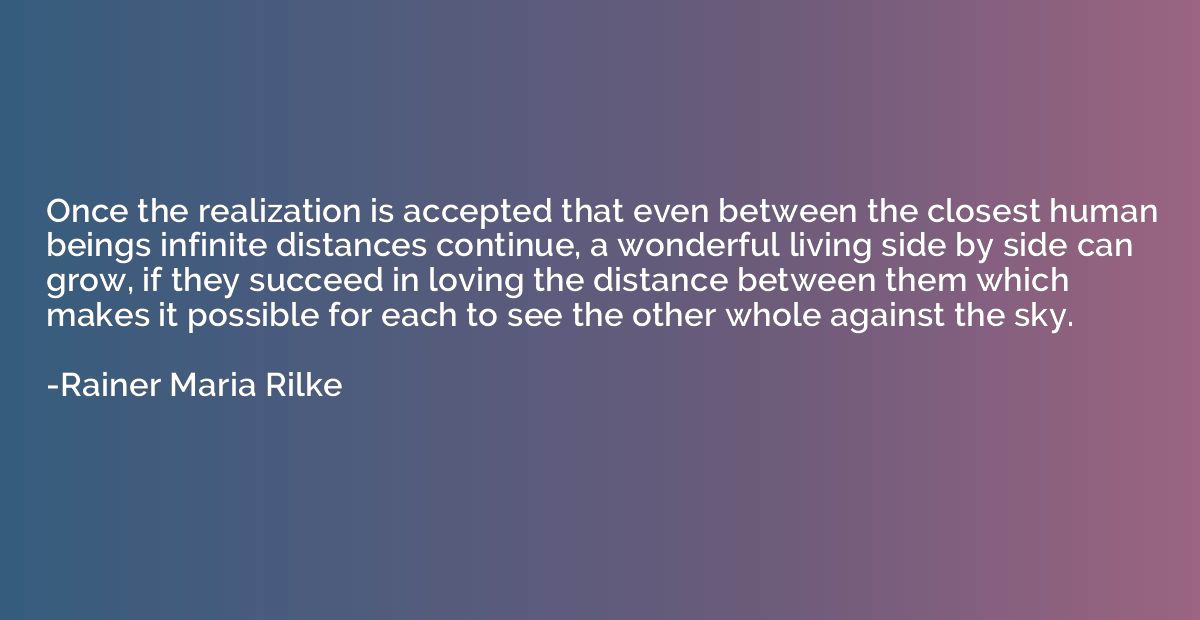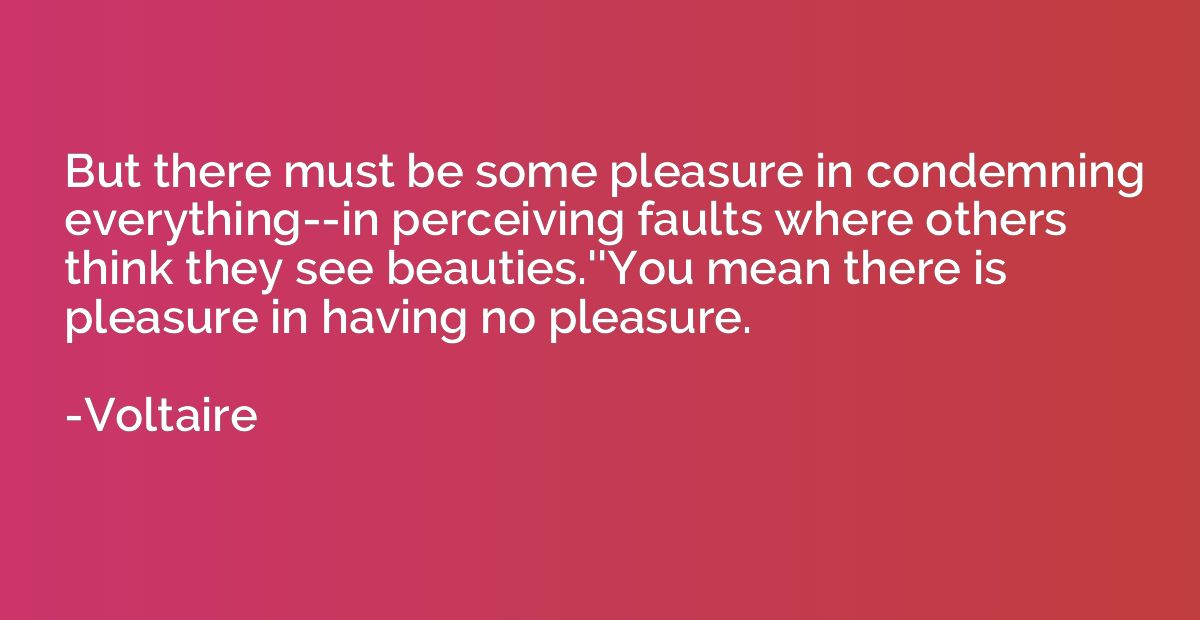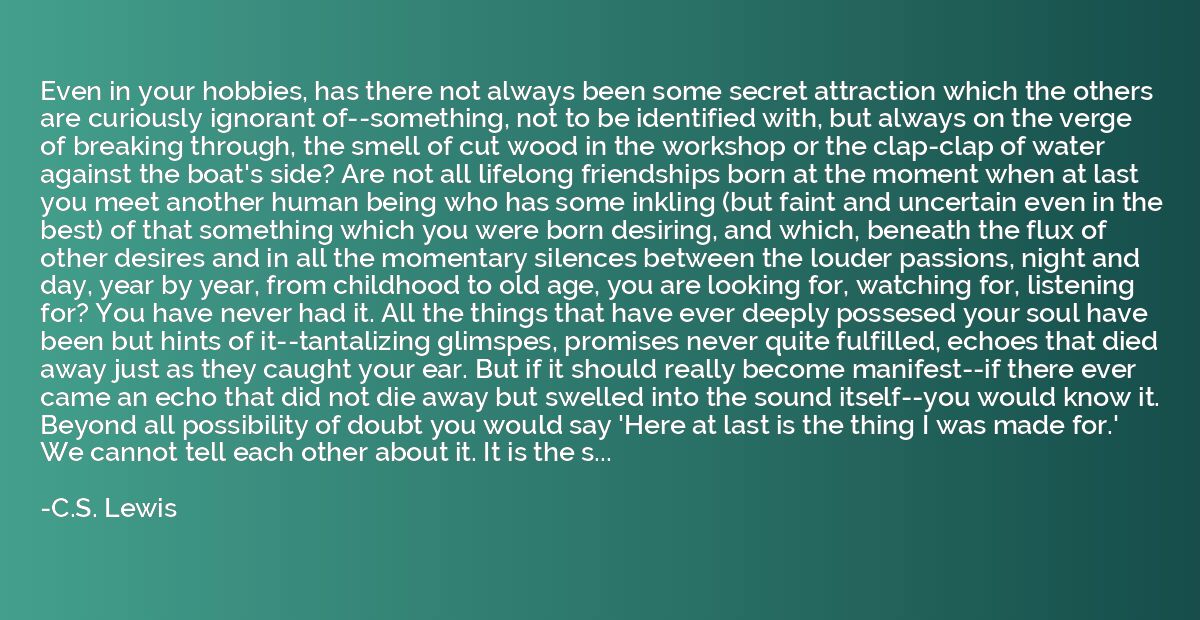Quote by Richard Brinsley Sheridan
I would by no means wish a daughter of mine to be a progeny of learning; I don't think so much learning becomes a young woman: for instance, I would never let her meddle with Greek, or Hebrew, or algebra, or simony, or fluxions, or paradoxes, or such inflammatory branches of learning; nor will it be necessary for her to handle any of your mathematical, astronomical, diabolical instruments; but... I would send her, at nine years old, to a boarding-school, in order to learn a little ingenuity and artifice: then, sir, she would have a supercilious knowledge in accounts, and, as she grew up, I would have her instructed in geometry, that she might know something of the contagious countries: this is what I would have a woman know; and I don't think there is a superstitious article in it.

Summary
This quote reflects the viewpoint of a person who believes that excessive learning, especially in subjects like Greek, Hebrew, algebra, and other academic disciplines, is not suitable or necessary for a young woman. Instead, the person suggests focusing on practical skills such as ingenuity, artifice, accounting, and geometry. The speaker argues that these areas of knowledge can provide a well-rounded education without involving superstitious beliefs. Essentially, the quote expresses a preference for a more practical and limited education tailored to fit societal expectations imposed on women during the time when the quote was written.














